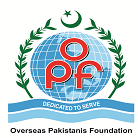Adil Haider
US Surgeon
United States of America
Biography
A Pakistani-American trauma surgeon in the United States has been awarded one of the country’s most prestigious awards for immigrants — the Ellis Island Medal of Honour — in recognition for his expertise in the field and his service to those “less fortunate”.
Profile
A Pakistani-American trauma surgeon in the United States has been awarded one of the country’s most prestigious awards for immigrants — the Ellis Island Medal of Honour — in recognition for his expertise in the field and his service to those “less fortunate”.
The Ellis Island Medal of Honour is “presented annually to American citizens who have distinguished themselves within their own ethnic groups while exemplifying the values of the American way of life”. Past medallists include seven US presidents, several world leaders and two Nobel Prize winners.
Dr Adil Haider ─ a second generation American ─ was born in Zanesville, Ohio in 1973 to Pakistani parents who had moved to the US in 1960s.
However, the family returned to Pakistan in the early 1980s as Haider’s parents wanted to “give back” to the country, the surgeon said while speaking to Dawn.com.
Haider completed his early education in Karachi and went on to attend the Aga Khan University (AKU) to become a medical doctor in 1998.
He moved to the US the following year to pursue a master’s degree in public health at Johns Hopkins University in Baltimore Maryland, following which he applied for a residency and started a journey that has seen him become one of the best acute trauma surgeons in his field.
In a Facebook post on Monday, the award-winning scientist and doctor said he was “humbled” to receive the honour as he believed there were “many others who deserved” it more than him.
“Only in America is this possible,” he added, saying the “medal reminds [him] that the American dream is alive”.
“It is our job to protect it and ensure that it remains for all to come, generation after generation,” he added.
Haider also thanked his mentors, supporters, peers and friends and family at home.
Currently, he is working as the Kessler Director of the Center for Surgery and Public Health at the Brigham and Women’s Hospital and Harvard Medical School. He is also the principal investigator on extra-mural grants worth more than $7m and has authored more than 190 peer-reviewed papers.
The award-winning surgeon has also formally mentored more than 100 researchers over the last 15 years, with many of his medical graduates coming from Pakistan.
While speaking to Dawn.com, Haider said he spent his formative years, specifically his teenage and early adulthood, in Pakistan where he learned the value of hard work and equality.
“I was privileged enough to attend AKU where at least 20 per cent of the curriculum is focused on community health care,” the surgeon said, adding it was during this time that he realised how important it was for everyone to have an equal chance at accessing quality health care.
“I realised that [by working in] public health, we could transform the ideals we learn in clinical medicine and impact a larger number of people,” Haider said.
The surgeon added that conducting community clinics in low-income areas and slums of Karachi allowed him to learn how to maximise treatment using limited resources.
When asked whether medicine was something he always wanted to practice, he said, “I was fortunate enough to never be pressured into choosing this profession. I always wanted to become a trauma surgeon.”
Sharing a childhood memory, Haider said he was first drawn to the profession when he was six years old.
“I used to watch an American drama series called ‘Trapper John, M.D.’ where the protagonist is a trauma surgeon and treats patients who had just been shot or had got caught in a fire, among other emergency situations,” he added.


